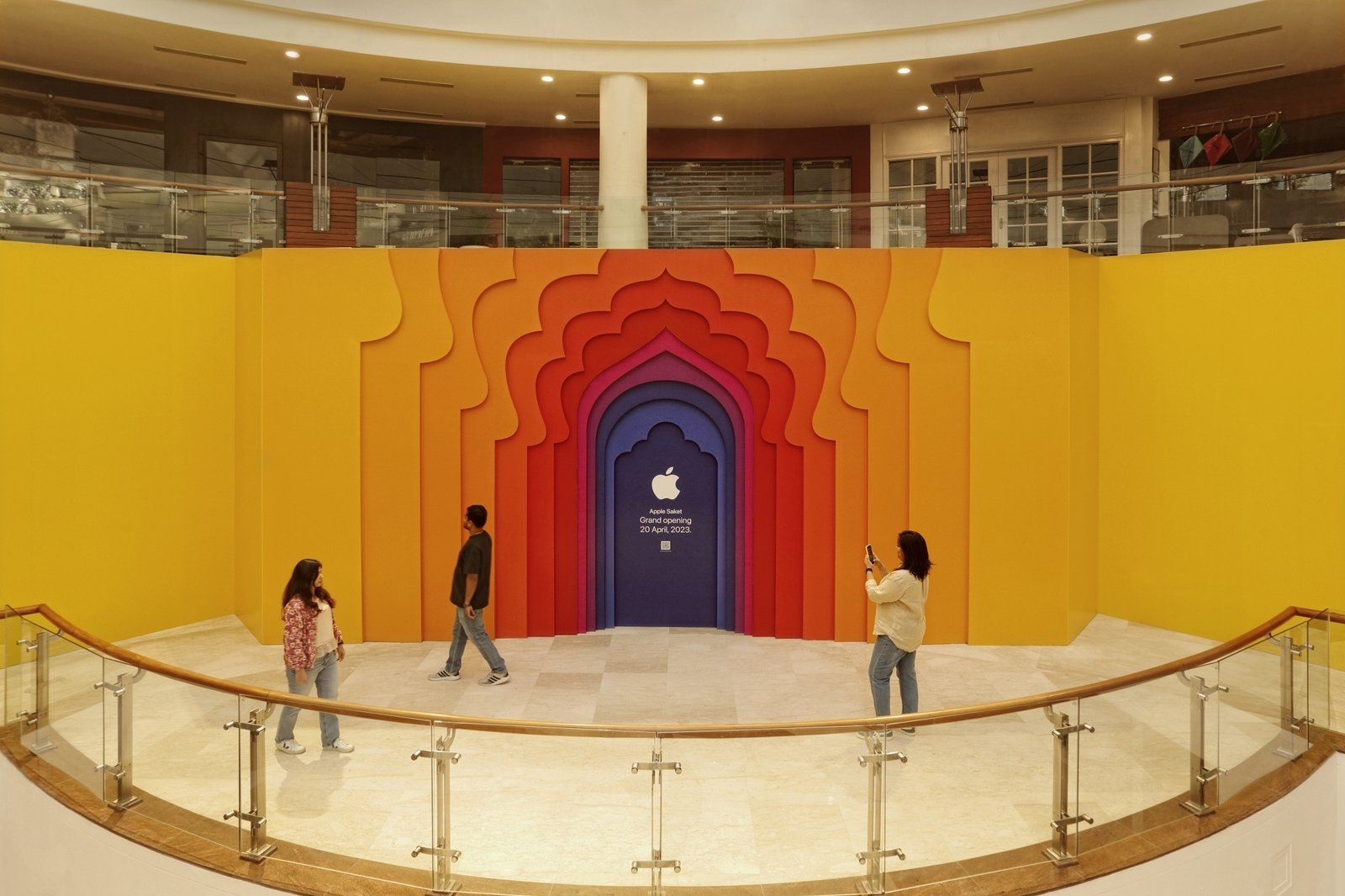New Delhi, April 11 – Apple on Tuesday announced it will open the doors of its two own retail stores in India this month, as the tech giant doubles down on strengthening its presence in the country.
While Apple BKC in Mumbai will be thrown open on April 18, Apple Saket in Delhi will be open for customers on April 20.
“These new retail locations mark a significant expansion in India that will offer great new ways to browse, discover, and buy Apple products with exceptional service and experiences for customers,” the company said in a statement.
The barricade for Apple Saket features a unique design that takes inspiration from Delhi’s many gates, each signifying a new chapter to the city’s storied past.
The colourful artwork celebrates Apple’s second store in India — located right in the Capital.
Beginning April 20, customers will be able to stop by to explore Apple’s latest product lineup, find creative inspiration, and get personalised service and support from the store’s team of specialists, creatives, and geniuses.
In celebration of the first Apple Store opening in India, Apple BKC at Jio World Drive Mall in Mumbai announced a special Today at Apple series a” “Mumbai Rising” a” running from opening day through the summer.
Bringing visitors, local artists, and creatives together, these sessions will offer hands-on activities with Apple’s products and services that celebrate the local community and culture in Mumbai, said Apple.
Ahead of opening day, customers are invited to download custom Apple BKC and Apple Saket wallpapers, specially curated playlists on Apple Music to move to the sounds of Mumbai and Delhi.
At Apple, every new store or facility is designed to reflect its values — from creativity and innovation to respect for the environment.
The tech giant aligns design and construction criteria to industry-recognised best practices for green buildings, promoting water conservation, energy efficiency, and responsible material sourcing.
Like all Apple facilities, the stores run on 100 per cent renewable energy.
Apple focuses on historical sites that can be reimagined to revitalise locations and the surrounding communities. It aims to reflect the surroundings by incorporating elements from the local landscape and ecosystem.











